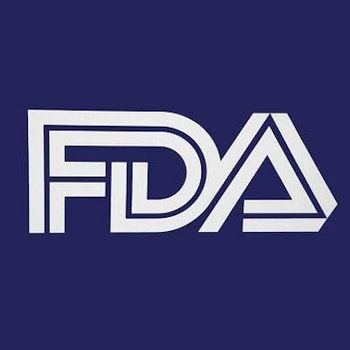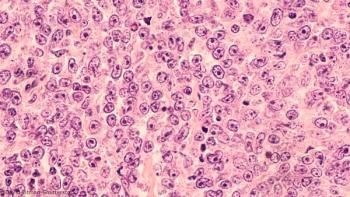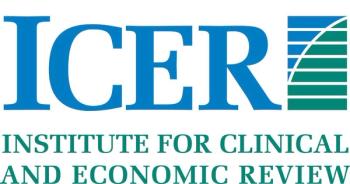
Treatment with a CD19-targeted CAR-natural killer–cell therapy led to a 73% objective response rate, including 7 complete responses, in patients with relapsed/refractory non-Hodgkin lymphoma and chronic lymphocytic leukemia.

Treatment with a CD19-targeted CAR-natural killer–cell therapy led to a 73% objective response rate, including 7 complete responses, in patients with relapsed/refractory non-Hodgkin lymphoma and chronic lymphocytic leukemia.

The FDA has granted a priority review designation to a biologics license application for the anti-CD19 CAR T-cell therapy lisocabtagene maraleucel for the treatment of adult patients with relapsed/refractory large B-cell lymphoma after at least 2 prior therapies.


The presence of circulating tumor cell was found to be independently associated with relapse in patients with stage III melanoma, suggesting that CTC assessment may be useful in identify patients who are at risk for relapse and could benefit from adjuvant therapy.

The planned trial will investigate the safety and efficacy of the novel multi-tumor associated antigen T-cell therapy in patients with post-transplant acute myeloid leukemia.


The FDA has granted a priority review designation to a biologics license application for the investigational CAR T-cell therapy KTE-X19 as a treatment for adult patients with relapsed/refractory mantle cell lymphoma.

The biologic license application is supported by data from the phase II ZUMA-2 trial, which is currently assessing the CAR T-cell therapy for the treatment of adult patients with relapsed or refractory mantle cell lymphoma.

Based on available data, treatment is not that obvious for patients with metastatic non–small cell lung cancer who are tolerating treatment well and have either a complete or partial response to therapy.

Patients with either relapsed or refractory non-Hodgkin lymphoma or chronic lymphocytic leukemia treated with CAR NK cells had a response without the development of cytokine release syndrome, neurotoxicity, or graft-versus-host disease.

Peter Voorhees, MD, provides an overview of the many developments made with CAR T-cell therapy in multiple myeloma, as well as the exciting research being done with bispecific antibodies

Calibr received approval from the FDA to move forward with an investigational new drug to treat relapsed/refractory B-cell malignancies with a switchable CAR T-cell therapy.

The data was presented at the EHA-EBMT 2nd European CAR T-Cell Meeting, which took place on January 30, 2020 in Barcelona, Spain, and showed encouraging signs of a manageable safety profile in adults with relapsed/refractory DLBCL.

Praveen Ramakrishnan, MD, spotlights some of the exciting data recently presented across the spectrum of non-Hodgkin lymphoma treatment.

Chimeric antigen receptor (CAR) T cells are a patient’s own, harvested and reengineered to attack specific malignant cells. They were initially developed using knowledge gleaned from allogeneic stem cell transplants: that donor mature immune cells can attack healthy cells in the recipient patient.

The European Medicines Agency has validated and is now evaluating a Marketing Authorization Application for the CAR T-cell therapy KTE-X19 for the treatment of adult patients with relapsed/refractory mantle cell lymphoma.

Larry Anderson, MD, PhD, discusses emerging therapies for patients with multiple myeloma that were highlighted at the 2019 ASH Annual Meeting.


Ankit Kansagra, MD, discusses the evolving use of CAR T-cell therapy in multiple myeloma and lymphoma.

Recent studies have demonstrated that somatic mutations of ATM denote greater response to radiation therapy and that gene patterns may help predict the timing of recurrence following radiation.

The American Medical Association Foundation announced a national fellowship program to promote best practices and shared outcomes for the LGBTQ community; the FDA issued guidances promoting development of gene therapy products; the CDC announces 110 possible cases of coronavirus in the United States.


The Institute for Clinical and Economic Review (ICER) published a draft evidence report on crizanlizumab (Adakveo), voxelotor (Oxbryta), and L-glutamine (Endari) for sickle cell disease, as well as a draft scoping document on valoctocogene roxaparvovec, an investigational gene therapy, and emicizumab (Helimbra) for hemophilia.

Lloyd Damon, MD, discusses the evolution of the treatment paradigm in acute lymphoblastic leukemia.

The medical director of the Comprehensive Epilepsy Clinic at Nicklaus Children’s Hospital shared his insight into the potential of using an SCN1A-targeted adeno-associated viral vector-based gene therapy in epilepsy.

Reviews of apixaban in active cancer, Medicare costs after CAR T-cell therapy, and the need for financial assistance for novel therapies.

The FDA has granted a priority review designation to a supplemental new drug application for olaparib (Lynparza) for the treatment of patients with metastatic castration-resistant prostate cancer who have deleterious or suspected deleterious or somatic homologous recombination repair gene mutations, and who have also progressed on prior therapy with a new hormonal agent.

A pair of interviews on investigational therapies whose sponsors reported updates at the 61st American Society of Hematology Annual Meeting and Exposition: UCART19 from Servier and a revamped anti-BCMA therapy ide-cel from bluebird bio.

Coverage from the 61st American Society of Hematology Annual Meeting and Exposition in Orlando, Florida, featured results for allogeneic or "off the shelf" CAR T-cell treatments and bispecific antibodies.
